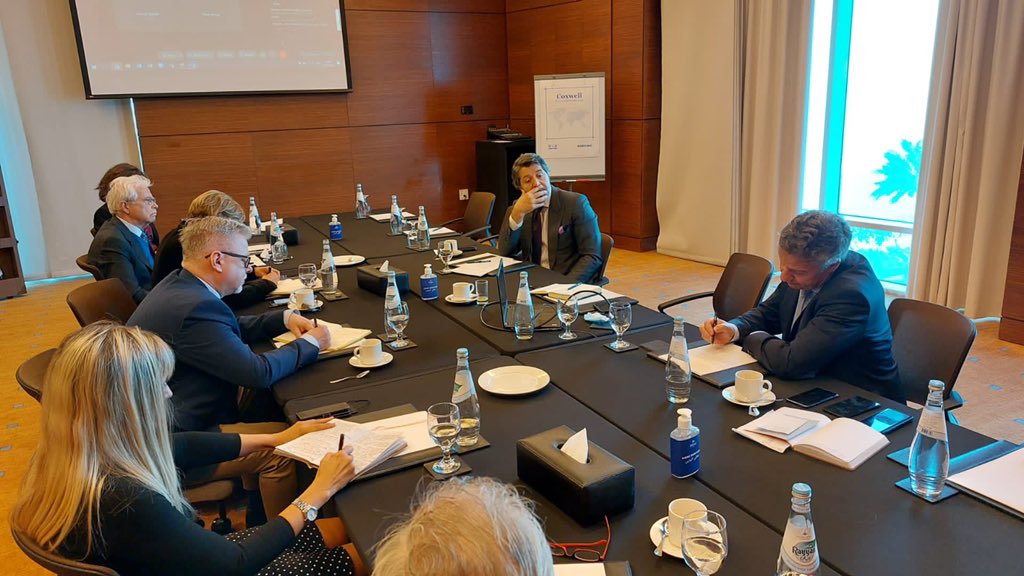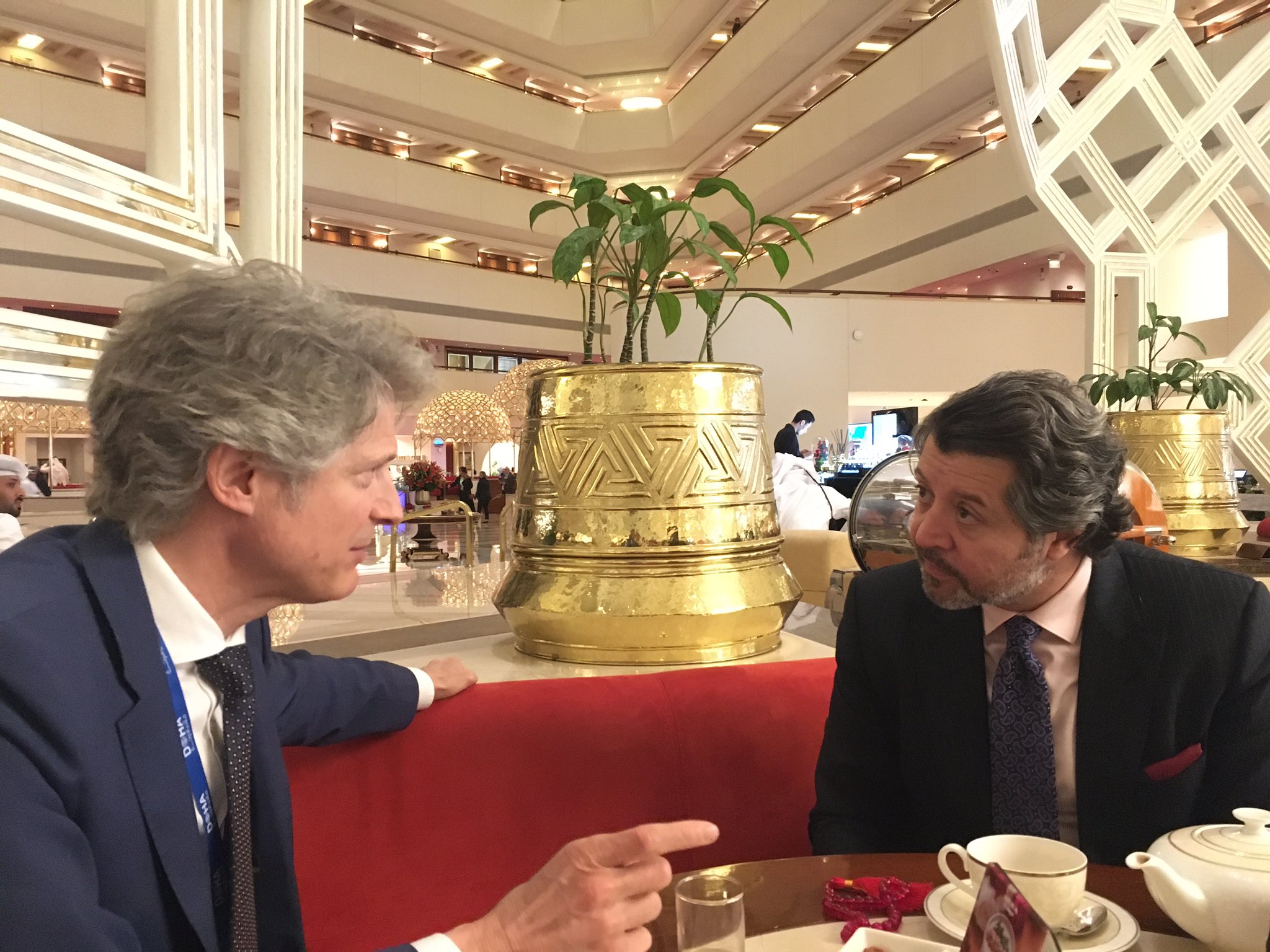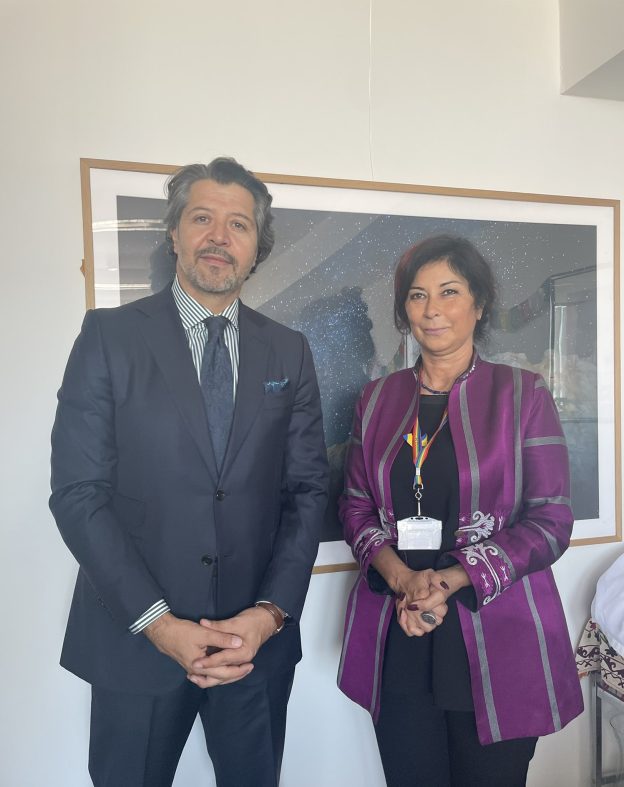Jun 06, 2009
The Congressional Progressive Caucus, co-chaired by United States Congressman Raul M. Grijalva and Congresswoman Lynn Woolsey, announced a comprehensive six-part series “Afghanistan: A Road Map for Progress.” The objective of the forums was to engage members of Congress on Afghanistan, especially, since the country has become the first major test for President Obama’s administration. The topics for the six forums were:
1) Historic Perspective on Afghanistan, its people and their Culture
2) Defining American Strategic Interests in Afghanistan, and the Northwest Border Area of Pakistan
3) What should be the Roles and Goals of the Military in Afghanistan (and NW Border Region)
4) What should a Comprehensive Strategy address for Afghanistan
5) Pakistan foreign policy in the context of Afghanistan
6) Forging an international Diplomatic Strategy for Afghanistan
Mr. Hekmat Karzai, Director of CAPS, was invited to speak on Panel three of the series along with Clare Lockhart, Director of the Institute for State Effectiveness, and Paul D. Eaton, Major General, U.S. Army Retired.
In his address, Mr. Karzai highlighted a two-pronged strategy on what the roles and goals of the military should be in Afghanistan.
The first and most important priority should be the training of the Afghan security sector with particular emphasis on the Afghan National Police and the Afghan National Army. Providing necessary resources and equipment will be crucial in the long run. Only if 10% of the resources that are spent on the international military are spent on the Afghans, the chances of success in the long-run are much greater. With necessary capabilities, the Afghans are better suited to deal with the challenges on the ground.
Second, the Coalition Forces have to get out of their bases and protect the Afghan people. They should become mobile and find physical presence in the insurgency-affected areas to deal with the threat of terrorism.
So far, the strategy has been to attack the militants in rural areas and leave the area after defeating the insurgents, but the insurgents return and continue their attacks against the Afghan government and the international forces. Cleary, this strategy is not working.
The military should engage the locals, but this engagement should be done through the ANA, not ISAF or the Coalition Forces.
The locals are slowly losing their trust in the foreign troops and that is mainly due to the fact that the foreigners are not sensitive enough towards local culture. Most crucially, foreign forces are continuously manipulated and given false information by certain individuals, in certain cases leads to civilian casualties.
There is still an opportunity to succeed in Afghanistan because the majority of the Afghans still support the international effort; however, that support should not be taken for granted.
While in Washington, Mr. Karzai also participated in a one conference titled: “Future Prospects in Afghanistan and the Region”, which was hosted by the United States Institute of Peace, The Carr Center for Human Rights Policy (Harvard University), Asia Society and The Center on International Cooperation (New York University). Some of the leading experts and policy makers participated in the event including Ambassador Richard Holbrooke, Specially Envoy to Pakistan and Afghanistan; Mr. Michael Ignatieff, Interim leader of the Liberal Party of Canada; Barnett Rubin, NYU; Shuja Nawaz, Director, the South Asia Center at The Atlantic Council of the United States; Rory Stewart, Director, Harvard Kennedy School’s Carr Center for Human Rights Policy.
Mr. Karzai spoke at a panel ‘Taliban, Counterinsurgency and Counter-terrorism” along with Michael Semple and Amin Tarzi. In his remarks, Mr. Karzai identified the key groups operating in Afghanistan and stressed that the insurgency in Afghanistan should not be seen as a monolithic insurgency because there are several groups that operate in specific area with specific mandate.
To download the full agenda for ‘Future Prospects in Afghanistan and the Region’ please click here:





Leave A Comment